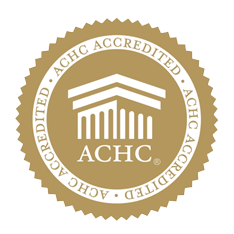Caring Connections
Helpful tips for family caregivers
November/December 2010
In this season of gratitude and grace, we offer tips to help you gently support your family member to live as safely and independently as possible.
Engage with Grace
Thanksgiving is a time we traditionally gather with family to celebrate our gratitude for life. As those who are dealing with a serious illness know, life is a gift. The fact that it does not last forever is part of what makes life precious. Join others who are choosing to spend a portion of this holiday gathering to engage with grace. This is a national movement to gracefully promote family discussions about end-of-life preferences. Talking with family is key to ensuring that your own wishes are followed. In caring for a family member, knowing that person’s wishes ahead of time reduces the potential for guilt and conflict.
You can lead the way by reviewing with your family your own answers to these questions:
- Who would you like to have make decisions for you if you are unable to speak for yourself? Ideally, you have completed an advance directive. In this document, you name your medical power of attorney and give him or her some basic instructions. Use this time to let others know whom you have chosen and what you would like.
- Where would you like to spend your last days? At home or in a hospital? What would be the most comforting?
- Do you want aggressive medical treatment right up to the end? If so, make sure your family knows to advocate for you.
- Would you prefer minimal intervention? Depending on the circumstances, your priority in your last weeks may be to live as normally as possible, placing quality over quantity. Prepare your family to accept this as your choice.
During this season of thanks, you can thank your family for their support of you and encourage them to share their wishes as well.
Return to top
Help Mom be a safer driver
 Driving is not an all-or-nothing proposition. If you do bring up driving concerns, tread lightly. And be sure to emphasize your desire to help your loved one continue to drive. Driving safety can be accomplished with a collection of small modifications.
Driving is not an all-or-nothing proposition. If you do bring up driving concerns, tread lightly. And be sure to emphasize your desire to help your loved one continue to drive. Driving safety can be accomplished with a collection of small modifications.
A Mature Driver course. The American Automobile Association and the American Association of Retired Persons each offer courses that take just a few hours. They are filled with useful tips for older adults. You can even find courses online. If you are looking for an incentive, check with your relative’s car insurance. They will likely discount premiums for those who take an approved course.
Changes to the car. Have seats and mirrors adjusted so that your loved one has maximum visibility. Reduce blind spots by adding wide-angle mirrors. Keep wipers fresh for clear vision in the rain. Check brakes regularly. And make sure the tires are properly inflated and have enough tread for good traction and stopping.
Flexibility exercises. There are stretches that can be done to improve the range of turning of the head. This is vital for safely backing up, changing lanes, and getting on the freeway.
Prudent driving habits. If glare and night vision are a problem, consider not driving from twilight on. Only travel surface streets; avoid the freeway when possible. Run errands midday when traffic is lighter. Remember that three right turns can get you where a left turn does and is immensely safer, especially if there is no left-turn light. Reduce distractions: Halt conversations and turn off the radio when driving conditions are complicated. This allows for maximum response time even if reflexes are slow.
Reduced driving ability does not mean your loved one needs to give up driving altogether. Slight modifications such as these can quickly increase safety and extend your relative’s ability to drive well for years.
Return to topManaging medications: Remembering to take medicines
It seems that the older we get, the more pills we take. Remembering to take them, and to take them on time, can challenge even the sharpest mind.
If your loved one has occasional memory lapses, getting into a good routine for taking medications might be all that’s necessary to stick with the doctor’s recommendations. Some suggestions:
- Keep pills in sight. Good places might include the kitchen table or counter, or a bureau top. Keep them away from direct sunlight by a window or a steamy room, such as a bathroom.
- Link with other habits. Work with your loved one to associate pill-taking time with other routines, such as morning coffee or brushing teeth.
- Use a pill box. Pill boxes organize daily doses for a week. The simplest have seven compartments. Others have two or three compartments per day for am/pm doses.
- Add an alarm. Consider a pill box or a wristwatch with an alarm. Or program your loved one’s cell phone to ring a specific tone when it’s time to take a pill.
More active support may be necessary if your loved one has ongoing memory issues. Among the options available:
- Automated pill dispenser. These dispensers sound an alarm and open a dispensing drawer when it is time to take a pill. Some can notify you if a dose is skipped. Check the federal government’s database of available products.
- Telephone reminder. For a monthly fee, your loved one receives timed, daily phone calls and an automated message to take his or her medications. Some services will notify you if the phone is not answered.
- Email or text message. MyMedSchedule’s no-cost service provides email or text reminders. Or check online for smart phone medication apps.
- Personal medical alert. Many home-based medical alert systems include an optional medication reminder service.
Return to top




